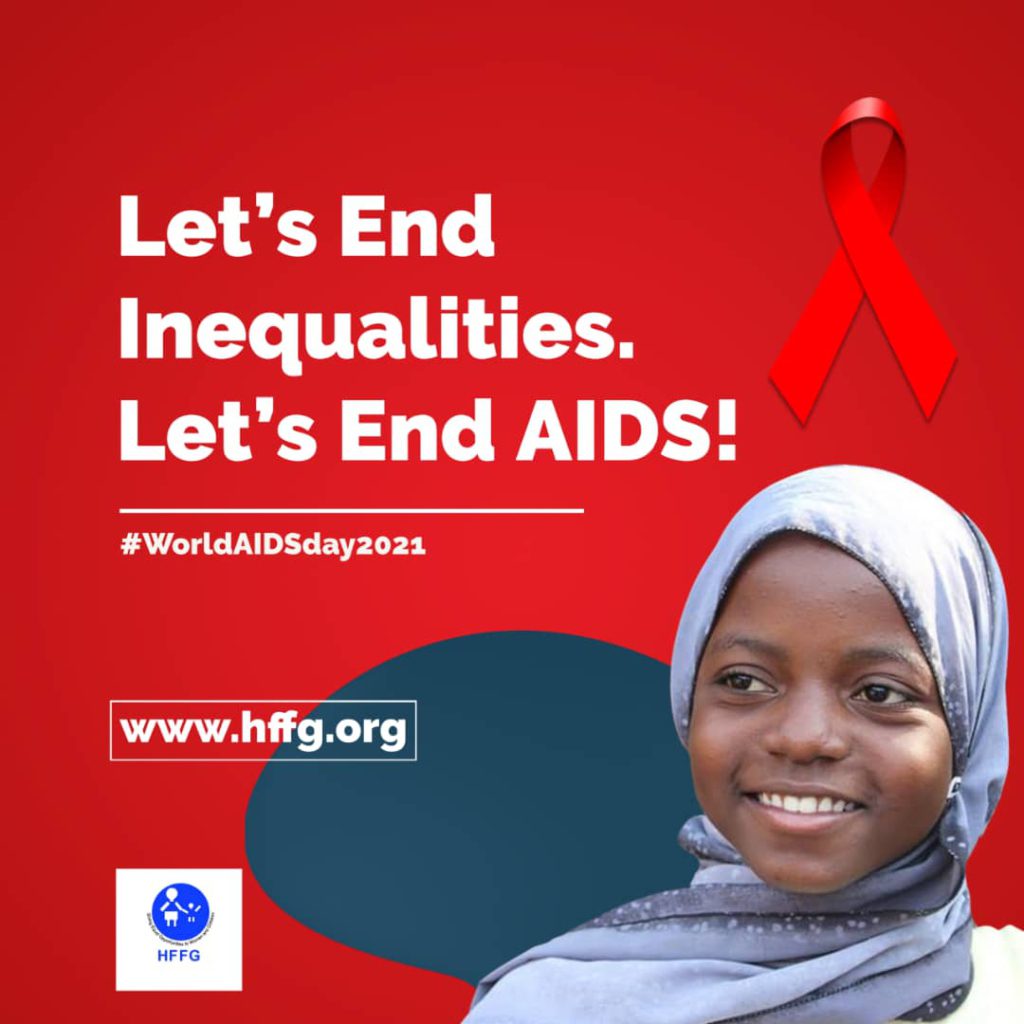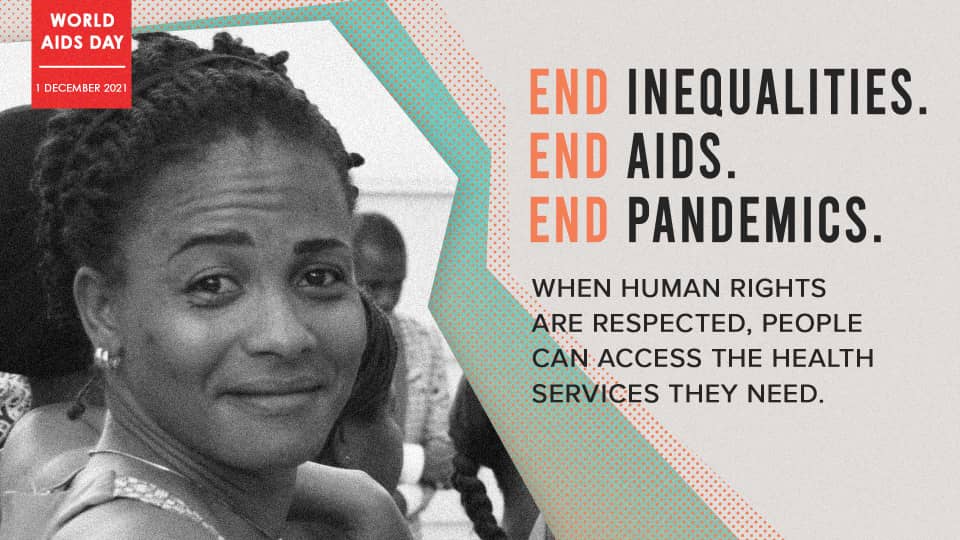The Hope For Future Generations (HFFG) and the Young Health Advocates Ghana (YHAG) have called on stakeholders working in the HIV space to take concrete steps to address factors that prevent the HIV community, especially young people, from accessing essential quality HIV services in Ghana.
A statement jointly issued by the two organisations, acknowledged the significant contribution of the Global Fund, UNAIDS Ghana, UNFPA Ghana, the Ghana AIDS Commission, the National AIDS Control Programme and other partners in reducing the HIV prevalence.
It however, pointed out the urgent need for more to be done to end gender-based violence which has a strong correlation with increment in risk of acquiring HIV among many, especially women and girls.

“When we talk of addressing inequalities and ending AIDS, we are also talking of paying attention to gender-based violence which causes immediate devastating consequences to many women and girls. Harmful practices such as female genital mutilation, child and forced marriage, rape and other sexual violence still exist in Ghana. So in addressing HIV and AIDS, we must put in more efforts to tackle gender-based violence which is a serious health and protection issue,’’ said the Executive Director of HFFG, Cecilia Senoo.
According to Section 6 of the Ghana 2020 Human Rights Report by United States Department of State, rape and domestic violence remain a serious issue in Ghana.
The report notes that the fear of stigma surrounding HIV continues to discourage persons from getting tested for HIV infection, and many of those who tested positive do not want to seek timely care, adding that “the physical layout of many clinics often made it difficult for the centres to respect confidentiality. It said HIV-positive persons face discrimination in employment and often are forced to leave their jobs or houses.
The President of YHAG, Priscilla Ama Addo, also commented that: “The current COVID-19 pandemic has revealed the inequalities and violence faced by victims at the hands of their abusers. As an advocacy and support group that fights for the well-being of young people, we are aware that many young people are unable to access youth-friendly HIV services in Ghana due to fear of stigma and discrimination and we want to appeal to all key stakeholders to take cognisance of this issue or challenge and correct the situation.”
She said that according to the 2020 HIV National Sentinel Survey Report, nearly 19,000 new infections were recorded in persons aged 15 to 49 with majority of them being females hence the need to eradicate stigma, inequalities and include young people in the creation and implementation of HIV policies and service delivery.
“We humbly recommend that civil society organisations representing children and young people living with HIV are included the creation of HIV policies and are assigned as watchdogs to ensure policymakers/duty bearers are delivering according to policies and implementation plans. We implore all stakeholders involved in the protection of vulnerable people to continue their support towards the vulnerable and remember them in policy formulation,” she said.
Hope for Future Generations is a national community-based non-governmental organisation, involved in issues affecting women, children, and girls in the country. The NGO was formed in 2001 and operates in all 16 regions of Ghana.

Young Health Advocates Ghana is a national network of young people working to prevent HIV among young Ghanaians under the auspices of Hope for Future Generations.
World AIDS Day is marked on 1 December each year to show support for people living with HIV and encourage progress in HIV/AIDS prevention, treatment and care around the world.
The theme for World AIDS Day 2021 (WAD) is “End inequalities. End AIDS. End Pandemics”. The theme, as set by the Joint United Nations Programme on HIV/AIDS (UNAIDS) and its allied agencies seeks to highlight the urgent need to end the inequalities that drive HIV infections, treatment and care.
According to UNAIDS, there were 1.5 million people newly infected with HIV in 2020 globally and 680 thousand people died of AIDS-related illnesses the same year. In Ghana, the 2020 HIV National Sentinel Survey Report estimated that 346,120 were living HIV, with 66 per cent being females. The national prevalence rate stood at 1.68 per cent.
Latest Stories
-
Asantehene receives more 19th century gold ornament and regalia
2 mins -
Hohoe Ghana Blind Union organises training for members ahead of Election 2024
8 mins -
Alan Kyerematen reveals his future plans for Ghanaian Health professionals
9 mins -
AAIN empowers women and small enterprises in Upper East Region through SHINE project
10 mins -
Akufo-Addo leads nationwide commissioning of 80 educational projects
16 mins -
Ghana and Seychelles strengthen bilateral ties with focus on key sectors
47 mins -
National Elections Security Taskforce meets political party heads ahead of December elections
51 mins -
Samsung’s AI-powered innovations honored by Consumer Technology Association
1 hour -
Fugitive Zambian MP arrested in Zimbabwe – minister
1 hour -
Town council in Canada at standstill over refusal to take King’s oath
2 hours -
Trump picks Pam Bondi as attorney general after Matt Gaetz withdraws
2 hours -
Providing quality seeds to farmers is first step towards achieving food security in Ghana
2 hours -
Thousands of PayPal customers report brief outage
2 hours -
Gary Gensler to leave role as SEC chairman
2 hours -
Contraceptive pills recalled in South Africa after mix-up
3 hours

